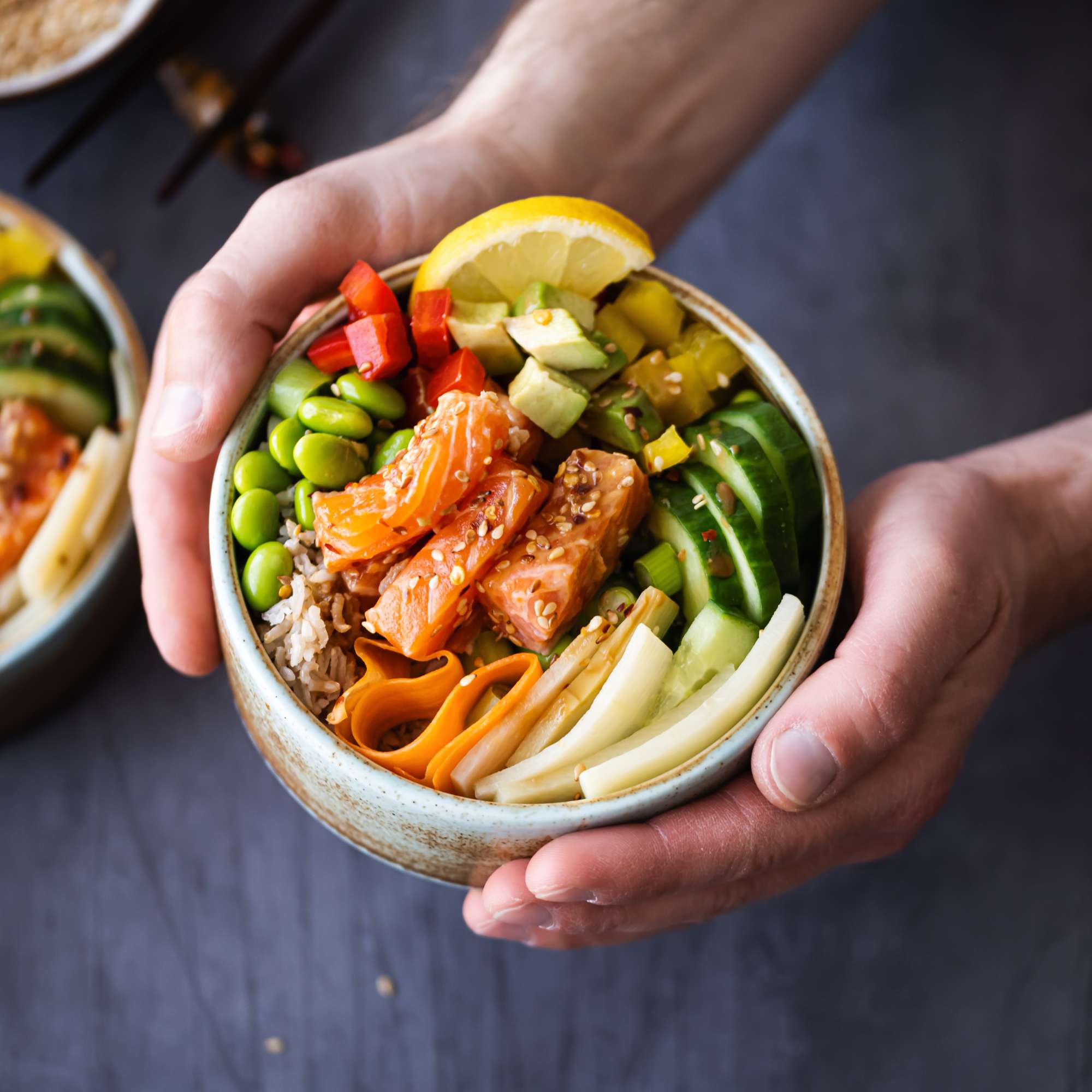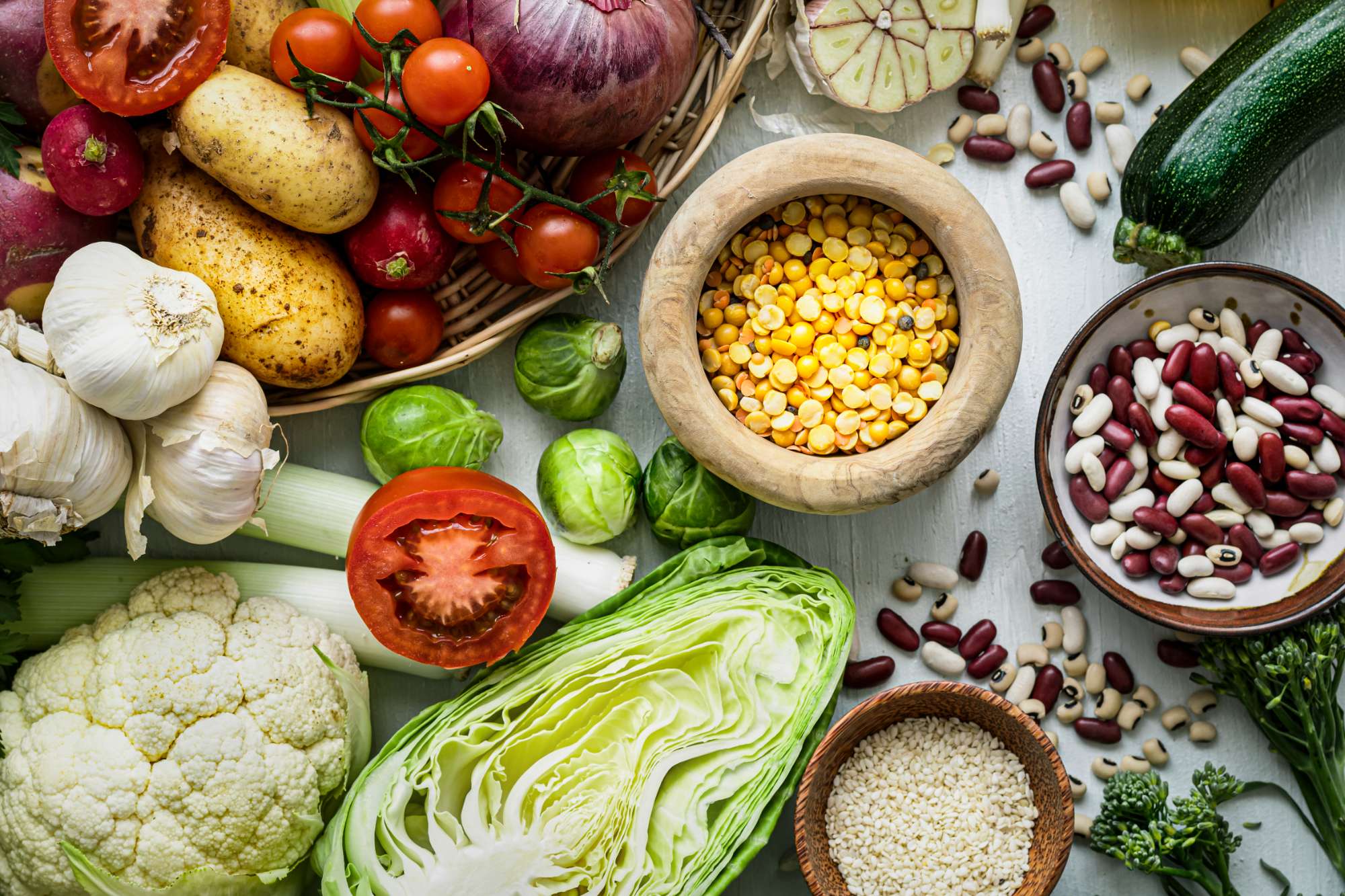A whole-foods diet
A whole-foods diet
A whole foods diet is good for health due to its selected natural whole foods, rich in vitamins, minerals, antioxidants and fiber.
A whole foods diet is a selection of foods that are close to their natural state, without added sugars, flavors or preservatives.
Whole foods include fresh fruits and vegetables; whole grains such as oats, brown rice or barley; nuts, beans; fish and shellfish like shrimp, crab, clams, scallops, snails, mussels; and eggs as well.
Whole foods are grown in the most natural way, without pesticides, additives or growth stimulants. The farming process is only treated with animal and plant waste, clean water without chemical fertilizers, sprays, or disinfectants...
Whole foods, which have a high nutritional content and natural flavors, offer high levels of vitamins, minerals, fiber and antioxidants that naturally protect health at their best.

What can you eat?
You can choose fresh fruits, vegetables, nuts, seeds and beans in their original state, which are all whole foods. Whole milk and some dairy products (Milk and some dairy products).
You can also add some minimally processed foods in your diet. This refers to foods prepared in advance for convenience, including fresh salads, sliced fruit,.. It can also include canned and frozen items, as long as they do not have additives like sugar or salt, flavorings or stabilizers.
.jpg)
What should you not eat?
You should not eat processed and ready-to-eat foods, highly manipulated foods, refined carbohydrates, processed grains, foods with added sugars. There are many types of ready-to-eat, processed foods that look like whole foods, but they often include additional ingredients that are used to alter taste, enhance flavor, and stabilize the packaging, which means they are no longer whole foods. People who follow a whole food diet usually prepare most of their meals at home.

The health benefits of a whole diet
1. Helps to lose weight and improves healthMany studies have proven that a whole food diet is effective for weight loss. They can also help you maintain weight loss in the long run due to their high fiber content and limited processed foods.
2. Reduces the risk of cancerSome studies show that following a whole food diet can reduce the risk of certain types of cancer such as breast cancer, prostate cancer, digestive system cancer, etc.
3. Reduces the risk of heart diseaseStudies have found that people who follow a whole food diet have a significantly lower risk of heart disease than those who do not.
4. Prevents cognitive declineA whole food diet may slow or prevent cognitive decline and Alzheimer's disease in older adults by virtue of its high concentration of plant compounds and antioxidants.
5. Reduces the risk of diabetesA large study found that people who adhered to a whole food diet had a 34% lower risk of developing diabetes than those who followed an unhealthy diet. The whole food diet may be beneficial for preventing type 2 diabetes, improving blood sugar control, weight loss, and lowering cholesterol in people with diabetes.

A whole food diet has no rules to follow, it should be the choice of healthy eating. Eating whole foods should be a preferred way of eating rather than a specific diet plan. As it is a diet that focuses on whole, unprocessed or minimally processed foods and avoids additives such as sugar, artificial ingredients, antibiotics or hormones. While this is a healthy, balanced diet, it is not always a realistic diet for everyone and for all circumstances.
Compiled and penned by Crocus Media